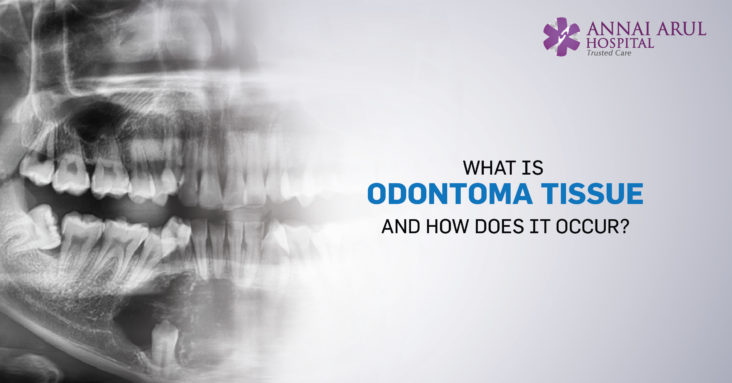Odontoma tissue is a tumour of the odontogenic epithelium. They are composed of all the mature components of dental hard and soft tissue – enamel, dentin and pulp.
How do they affect us?
They are the most common odontogenic tumours but cause quite some problems.
They interfere with the eruption of permanent teeth
They develop along with the growth of the normal teeth
Their development stops once the teeth attains full growth
They occur mainly in the young age groups
What are the symptoms?
Usually odontogenic tumours are asymptomatic and are discovered only during a routine radiographic dental examination when the normal eruption of teeth is delayed. There is no pain or swelling as in the case of other dental problems.
What are the types of odontogenic tumours?
There are mainly two types of odontoma tumours, they are Compound tumours and Complex tumours.
Compound Odontoma : This is usually a collection of small tooth-like structures called ‘denticles’. It occurs in the anterior region of the maxilla and associated with the interrupted crown of the canine. It is caused by a manifold growth of the dental lamina or growing into a collection of small enamel organs.
Complex Odontoma : It is generally composed of hapazardly arranged dental hard and soft tissue. It will have no resemblance to normal teeth. It usually occurs in the posterior region of the mandibles. There may be a missing tooth where it arises from a normal tooth follicle.
How is it diagnosed?
Differential diagnosis of odontoma is the way to detect its presence. Compound odontomas are detected easily due to their tooth like appearance. Complex odontomas can be differentiated due to their nature to be associated with the crown of the growing teeth. They develop at a very young age and have a dense body that can be well differentiated.
Treatment for Odontoma
Odontomas are treated by simple local excision and their prognosis is excellent. They don’t recur and are not invasive.


